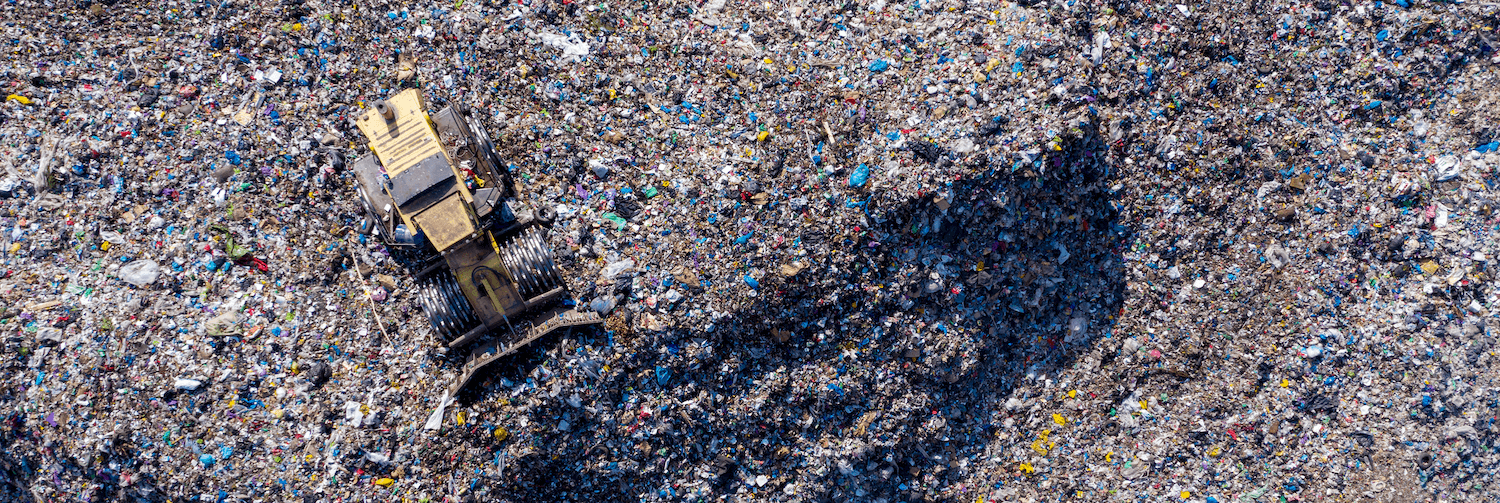Depositing waste in landfills is the most common way of getting rid of trash across the globe. As you go to throw away that bag of rubbish at a landfill, have you ever wondered how long it would take for the trash to decompose? From an environmental perspective, different items in the garbage bag take different amounts of time to decay. Here we will break down each component and help you understand how long it takes for rubbish to decompose in landfills.
-
Plastic
Plastic is probably the most commonly used item in our everyday lives. Do you want to carry water to work? Use a plastic bottle. Do you want to bring food to the park? Use a plastic tin. Do you want to pack your shopping items? Use a plastic paper bag. These are just some of the ways we use plastic products.
In as much as plastic items are widely used, their decomposition takes a very long time. Plastic paper bags take 10-20 years to decompose. Additionally, it takes up to 1000 years for other plastic products to decompose.
-
Food Items
You may think because food waste comes from the ground, its decomposition happens almost instantly well, that is not the case. Different food items decay at different rates. A banana peel may take up to one month to rot and decay, while an orange peel may take up to six months to do the same.
I know you probably think that this is a relatively short time for waste to decay, but when it comes to foods like lettuce, the case is different. Lettuce in a landfill can stay up to 25 years before decomposing entirely.
-
Glass
Glass is one of the items that we should keep away from landfills and try as much as possible to recycle. Recycling of glass is a simple process and requires minimal effort. You need to crush the glass into pieces, melt the parts, and mold them into something new. Recycling plants are a great place to start if you want to recycle glass. Doing so protects the environment because although glass is made from sand, it takes a very long time to decay. In landfills, glass takes about a million years to decompose. In some cases, items made of glass do not decay at all.
-
Batteries
It is almost impossible to go through a landfill and not find two or three battery cells spread out in different parts. The reason for this is that we are in a technological era where we use very many smart devices, and most of them are rechargeable. When these batteries get spoilt and are replaced with new ones, almost all of them end up in landfills.
Depositing batteries in landfills is toxic to the environment due to the materials used to make them. Rechargeable batteries are made using a variety of chemicals and metals. Potassium hydroxide is one of the substances used in these batteries. Potassium hydroxide converts chemical energy to free electrons, which are vital in the battery’s operation.
In rechargeable batteries, you will also find Aluminium, Zinc, Cobalt, Nickel Hydroxide, and many other materials. What is shocking is that these inner components do not even decompose; it is the outer part of the battery that decays. The outer metal part of the cell takes about 100 years to decay and then exposes such dangerous components to the environment. In essence, cells among the most hazardous items in landfills.
-
Paper
Paper items are one of the most eco-friendly materials in the entire world because they are made from wood, which is a natural component of the environment. When making it, the wood is first turned into a pulp, and then several processes are incorporated to yield the paper we use today. The most incredible thing is that paper waste usually takes 2-6 weeks to decompose, which is a lot quicker than most of the stuff in landfills.
A lot of waste is deposited in landfills every day. As more and more waste is dumped, we should put a lot of emphasis on the time each of the items takes to decompose. The reason is that if we do not know how long it takes for an item to rot, we may just be filling masses of land with waste, and they are going nowhere. Take plastic; for instance, it takes up to 450 years for plastic bottles to decay into the ground. Other items made of plastic can even take 1000 years.
Batteries on the other side take about 100 years to decompose completely. Such facts are shocking. Therefore, proper disposal methods should be put in place, and people should embrace recycling. What better way to do both by calling in Paul’s Rubbish Removal. We’ll arrive on-time to collect and dispose of all your unwanted waste in an environmentally-friendly way that minimises the impact on the environment.







